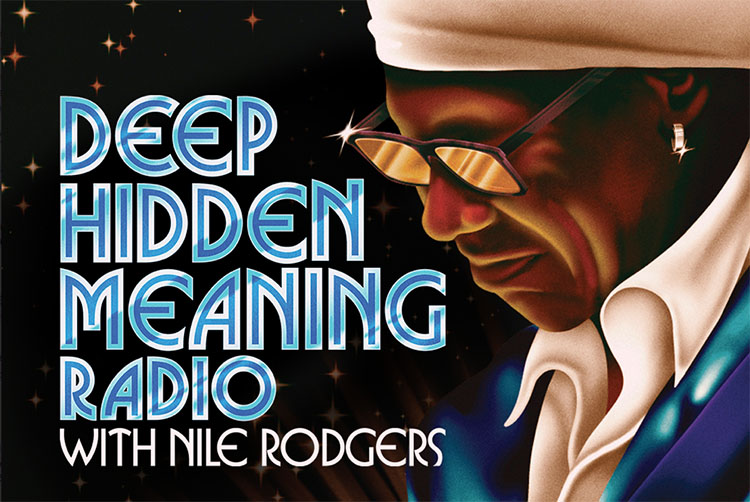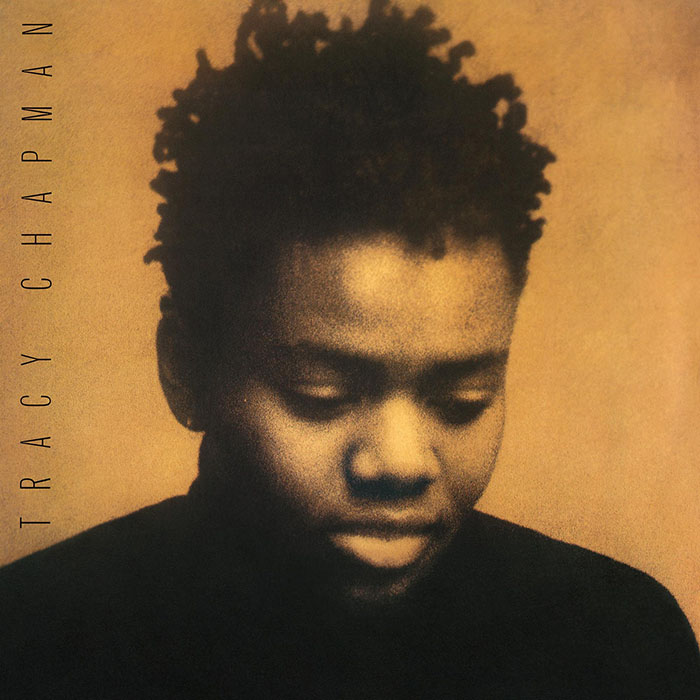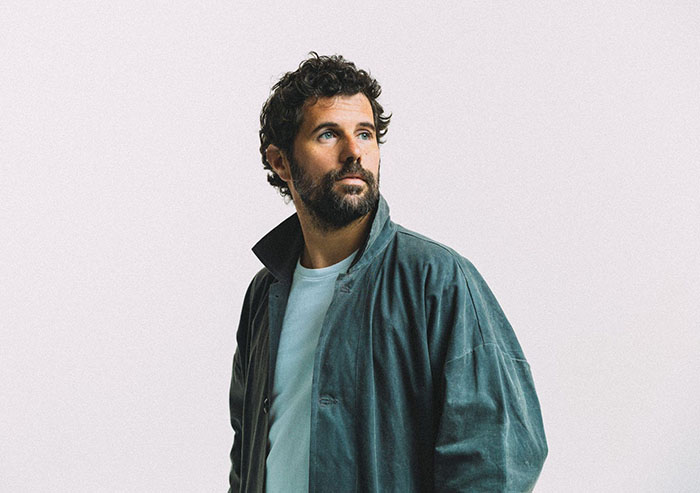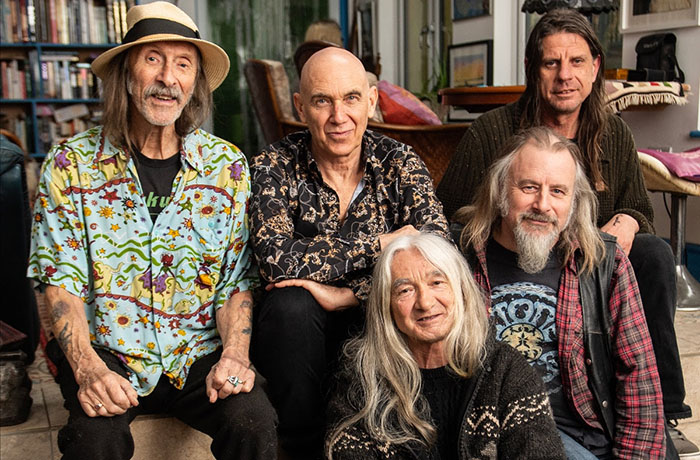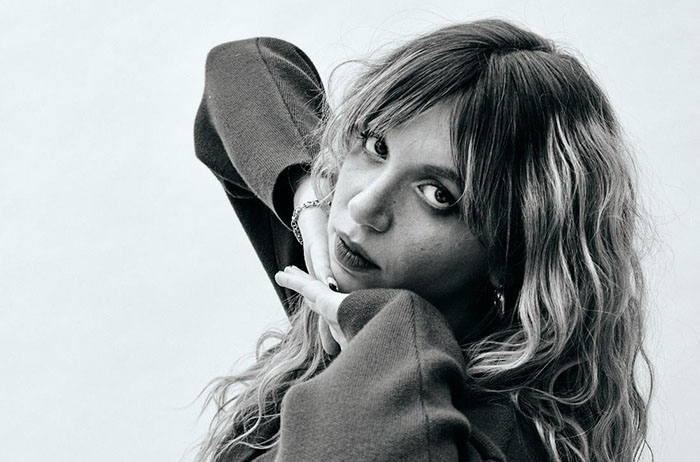In the second episode of Deep Hidden Meaning with Nile Rodgers, Nile is joined by record producer Andrew Watt who chats to him about working with his hero Ozzy Osbourne on his recent album ‘Ordinary Man’, how their collaboration came about and how it helped Ozzy following his recent health issues. Andrew also talks to Nile about writing ‘Señorita’ for Shawn Mendes and Camila Cabello, and how it started with a hook with the couple putting their story and real-life romance into it to make it the song it is now.
On the show, Nile discusses arguing with Madonna about her first single from the ‘Like A Virgin’ album, how he met David Bowie when he was with Billy Idol, how ‘Let’s Dance’ is the “easiest” record he ever worked on, how Chic structured their songs, and more. Nile also meets Ivors’ Rising Star Award winner Mysie, and Alanis Morissette looks back at how ‘You Oughta Know’ changed music when it was released 25 years ago.
Tune in to hear the episode in full tomorrow (Saturday 19th September) at 4pm BST at apple.co/_DHMRadio.
Andrew Watt on working with Ozzy Osbourne
It was so cool. It was so exciting, and he was at the house for five hours. That all happens. It goes amazing. And Kelly [Ozzy’s daughter] calls me after the session in tears, she’s like, “You don’t understand, we haven’t seen my dad like this in a year, he’s himself, his blood pressure is the lowest it’s been, he wants to take my mum out to dinner. He feels excited again.” And it was the first time in my life I had ever been a part of something where it wasn’t about the music in the studio, it was bigger than me, it affected this guy in a way where I was giving him life again. Kelly was like, “I want you to make an album with him,” and I was like, “Okay, I can’t do that.” Not because I don’t want to, because I don’t think I am capable to make a great Ozzy Osbourne album. And then he sent me this long, beautiful, unbelievable text about how much that meant to him and how he feels alive again. He said, “Can we make more music?” And I was like, “Abso-f**king-lutely!”
Andrew Watt on writing ‘Senorita’ and working with Shawn Mendes and Camila Cabello
It started with a riff. I was listening to Jose Feliciano. I actually tried to get him to play on the song because I’m romantic with that and I think he was gonna do it but we were in a time crunch. He did this cover of ‘Light My Fire’. What’s better than the Doors version of that song? It’s so amazing and it’s so ’60s and so iconic. And then he takes it and makes it this whole thing – I will listen to his version over the Doors any day of the week, that kind of swag and rhythm, and then I put down this guitar riff and I put down this Hofner bass line, I always use the Hofner bass on everything. And then Ali Tamposi came over and Charli XCX and that hook was just born, I don’t really remember how, but it just came out. I’m picturing who can play this on the guitar like that, who could do this? And Shawn Mendes just came to my head.
I could sit and talk to about him for a whole hour, not only as a musician, but just as a human being and how he treats everyone around him. He’s one of the most gracious artists I’ve ever worked with. And so I texted it to him when it was just a hook on the guitar, and he loved it, and I said to him that I feel like it could be a great duet, and he was like, “The only person in the world I could do the song with is Camila.” And when he said that to me, it was like, click, that’s it. It took a long time to make all the pieces fall together to where Camila was doing her part and making it her own and telling her story, and I can’t really say much more than they’re clearly together and really happy now and everything, and I think the collaboration of the song and everything, just kinda got them – that thing happened, that happens. It’s really amazing, and it’s a real story, their story, and I think people can feel that, they cling to something that’s real. That song was a pretty good hook when it started and then these two people coming together and putting their story into the song.
Nile Rodgers and Alanis Morissette on first singles and Madonna’s ‘Like A Virgin’
Nile: Madonna and I, we argued over – nicely argued – and it was because I was trying to look out for her. I wanted to her to have the best possible records she could have. I wanted to put out the song ‘Material Girl’ first because I just thought it was a better song, I thought it was more catchy, that’s what we should hit with. And Madonna was like, “No, we should come with ‘Like a Virgin’” And then she named the album ‘Like a Virgin’, and she sat me down and she schooled me, she sat me down and said, “You don’t understand, to a woman losing your virginity is a really important thing,” and so on, so I’m thinking as a guy, I mean, I guess it’s sort of important to us, for a minute…
Alanis: The song title is a little little less gravitas for you, maybe. I think it’s very smart of her to say that because whatever note that you come out on, based on the fact that there’s such reductivism and one-dimensionalisation of artists, you almost wanna come out with a song first, if you’re introducing yourself to the world, a song that is as many colours as it possibly can be, so for me, the “What’s the first single?” question was, should it be ‘Hand in My Pocket’, everyone thought maybe ‘Ironic’ or ‘Hand in My Pocket’ and I just was very clear that it needed to be ‘You Oughta Know’. Because if I was going to be one-dimensionalised as any one thing, I thought anger would be brilliant, because the three feelings, especially that I was not allowed to feel as a young person were anger, fear and sadness.
Alanis Morissette on how ‘You Oughta Know’ changed the perception of women in music
When we first went to radio with ‘You Oughta Know’ it was met a lot of times with people, radio programme directors saying, “Oh, you know what, we’re playing Tori Amos, we can’t play this new song,” or “We’ve already got Sinead O’Connor, we’re good on the females.” Literally… and I just thought, “Wow, so your radio station, you play one woman and that’s too much?” So in that sense, that’s what I felt changed too, all of a sudden those who were interested in the commerce side of this funny industry, they thought “Wow, women are now bankable, this is great.” Some of it was emotional and some of it was circumstantial with the fact that it blew up.
Nile Rodgers on meeting David Bowie and working on ‘Let’s Dance’
Sometimes great works like that really happen organically, that quickly. A lot of people don’t believe me when I tell them that the David Bowie album, ‘Let’s Dance’ is the easiest record my whole life. We did the whole thing from start to finish in 17 days. The whole thing, mixed done everything, vocal overdubs, Stevie Ray Vaughan overdubs, everything. 17 days done. I met David at a bar, I was hanging out with Billy Idol. And we walked into this club, and true story, Billy and I both see David at the same time, and Billy goes “Bloody hell, that’s David f**king Bowie!” And as he says, Bowie, he barfed! He was pretty drunk. And then he wiped his mouth with his sleeve and went, “Hello mate!” and that was it.
Nile Rodgers shares Chic’s secret when making music
It’s interesting that when I play a song, I’m always trying to interpret it all throughout the process, because I come from the old school where we believe in what we call track development, and we didn’t necessarily do it with so much production technique as much as we did it with playing. The secret to our records was that we would make the song, we play the song from the top to the bottom, but we would actually edit the end and put it at the beginning because all my songs basically start with the chorus, so we would take the hot part and put it at the beginning, because we knew that after we jammed it for an hour or so, we finally were ready to cut it, that that energy at the end we wanted at the beginning of our records, and that’s what we would do. That’s a secret. So when we go “Freak Out!”, that’s actually from the end of the song and we moved it to the beginning.
